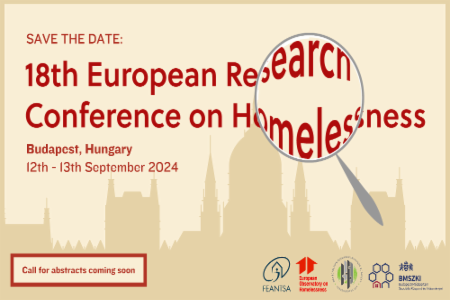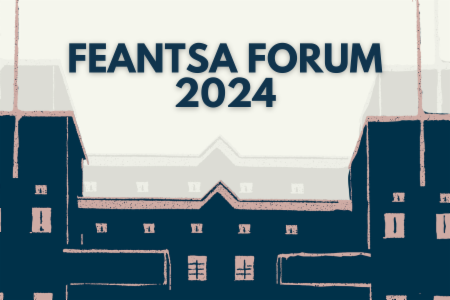STATEMENT
Antimicrobial Resistance and Homelessness
The World AMR Awareness Week (WAAW) November 18 to 24, 2023
Download the full statement here (PDF)
In recent years, significant achievements of modern medicine have been achieved across Europe and globally. However, the impact of antimicrobial resistance (AMR) continues to change the landscape of health, forcing societies to re-think global and planetary health in a more sustainable, effective and ecological manner; approaches that are fair and equitable continue to be needed. Simultaneously, the relationship between AMR and homelessness is an area that is frequently disregarded, despite AMR's growing global concern. Amid growing concern about both these challenges, FEANTSA highlights some crucial realities on how AMR affects people experiencing homelessness profoundly and why it's critical that we progress quickly to address this epidemic.
The Unspoken Connection of AMR and Homelessness: When bacteria develop and become resistant to medications meant to eradicate them, this is known as antimicrobial resistance. This dilemma is largely caused by the overuse and misuse of antibiotics in agriculture and healthcare. People experiencing homelessness frequently have limited access to quality healthcare, which leaves them more susceptible to infections and the abuse of medications that follows. This includes misuse and overuse of antibiotics, which are prescribed by health care practitioners (HCPs) as the sole modality in clinical care or self-medicated by individuals.
Limited Access to healthcare: There are many obstacles that people experiencing homelessness must overcome in order to have access to treatment. Some of them include lack of health insurance, difficulty finding transportation, and the stigma attached to their situation. Because of these barriers, individuals frequently turn to urgent care centres and emergency rooms for their medical needs. Antibiotic prescriptions in these situations are more likely to be given without a full evaluation, which fuels the growth of antibiotic resistance (AMR).
Unsanitary housing circumstances: Unsanitary housing circumstances can increase the risk of illnesses and have a disproportionately negative impact on people experiencing homelessness. Drug-resistant illnesses are more likely to develop in shelters due to overcrowding, shared airspaces, poor hygiene conditions as well as restricted access to sanitary facilities and clean water.
Cycles of recurring illnesses: Homeless people are more susceptible to repeated illnesses if they do not have access to adequate treatment and secure housing. Recurrent antibiotic treatments brought on by these disease cycles contribute to the emergence of drug-resistant bacteria.
The collateral damage to public health: Drug-resistant diseases are not limited in their occurrence within homeless communities. AMR is borderless, able to infect entire communities through medical facilities, personal connections, and environmental reservoirs. This puts everyone's access to antibiotics at risk, I.e., need for non/judicious use, prescription, dependence and resistance of antibiotics, jeopardising public health beyond individuals’ housing situation.
Calling for Action
Boost Access to Healthcare: To guarantee that homeless people have timely and adequate access to healthcare, it is imperative to invest in community clinics, outreach initiatives, and healthcare infrastructure.
Education and Awareness: It's critical to educate healthcare professionals and the homelessness sector about the risks associated with antimicrobial resistance (AMR). Giving people the knowledge, they need to prevent infections and use antibiotics appropriately can have a big impact.
Local Action for Global Payoffs
Housing as Healthcare: It is critical to acknowledge that adequate housing is a basic component of healthcare and an important social determinant of health. Effective healthcare management and the prevention of infections can be greatly aided by supportive housing initiatives that cater to the special requirements of the people experiencing homelessness, those inadequately housed and other marginalised/vulnerable groups.
One Health Approach:
In conclusion, antimicrobial resistance is a developing global health emergency that must be addressed now. FEANTSA highlights that recognising and tackling AMR confluence with homelessness is a critical first step towards a future where everyone is healthier and has fair access to healthcare. Targeted policies and immediate actions are required to guarantee that everyone has access to the care they need, regardless of particularly people living in poor housing situations or facing homelessness.





